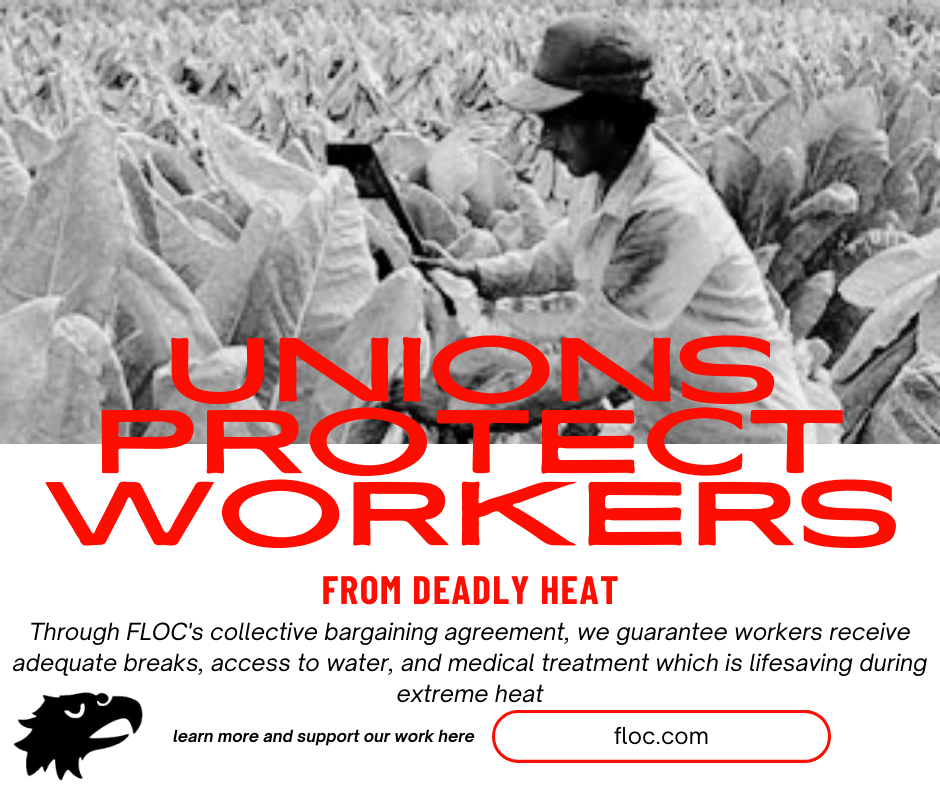In the past month, two farmworkers have died due to heat related illnesses while working in the fields in the United States. Efraín, a young 29-year-old passed away in South Florida after experiencing signs of heat illness. After trying to cool off, he got up to go back to work, but then was found on the ground unresponsive. Dario, who was only 26 years old, passed away after working in over 90-degree heat in Yuma, Arizona, during a week with record-breaking temperatures rising over 100 degrees days in a row. The deaths of these two young men are incomprehensible because they were preventable. The United States’ agricultural system was built upon and is still sustained through the incessant exploitation of labor, resulting in young men still dying in the fields.
Efraín and Dario’s deaths anger us. Their death brings a heavy sorrow to our community while also triggering the pain we have experienced in the past. In 2001, Urbano Ramirez was left to die after experiencing a heat stroke in the cucumber fields in North Carolina. He was not given medical treatment after exhibiting signs of severe heat stroke. Instead, he was left to die. Urbano’s death devastated us and is something we continue to reflect on. It propelled FLOC to include a section not only on breaks in our collective bargaining agreements, but also mandating that growers give workers medical attention, including transportation when needed. It is deplorable that 22 years later workers are still dying due to the heat.
Now more than ever we need collective bargaining and union representation for farmworkers. No amount of federal or state guidelines will prevent these senseless deaths if workers do not have a union to implement guidelines. Some of our members work on farms with only three other people, isolated from anyone else, out in the middle of rural North Carolina. A guideline will not change their workday, but an enforceable union contract will.
Throughout the years and even very recently, when workers raise that they are not given adequate breaks or rest during intense heat we swiftly resolve the situation. We have found that it is not always the farmer who is forcing workers to labor in the unsafe heat, but rather low-level supervisors. We have also found that workers who are paid by a piece rate system do not want to rest at a risk of losing pay, so they push themselves to unsafe extremes. To ensure safe working conditions, there must be continuous dialogue with workers, a mechanism to resolve issues, and fair pay. All that can be and has been achieved through union representation.
The food you eat should not come at the cost of another human’s life. As the climate continues to intensify, it is more important than ever to support farmworkers and their right to self-determination.
We grieve the loss of Efraín and Dario, and all others who have lost their lives due to unsafe working conditions.

